News

Construction works for second PAULA plant in Cameroon ongoing
January 2023
The PAULA Water GmbH supports the joint project INTEWAR with technical solutions on the topic of disaster and risk management in the field of drinking water supply.
As part of the project, we are implementing three PAULA plants in three different locations in Cameroon: in Douala, Soa and Yaoundé. The first plant has already been implemented in the community of Soa in July 2022.
Now the second plant is under construction. The selected site is within the community of Montana City in Douala. The construction works are carried out by the local company AURA Cameroun Sarl which has already supported the implementation of the first PAULA plant in Soa.
Work in progress! The construction works have started in December 2022 and will be finalized in February 2023.
The PAULA plant will treat water from a deep well that belongs to the community of Montana City in Douala. There is an existing water committee in the community which will be trained for operation after the installations are finalized.
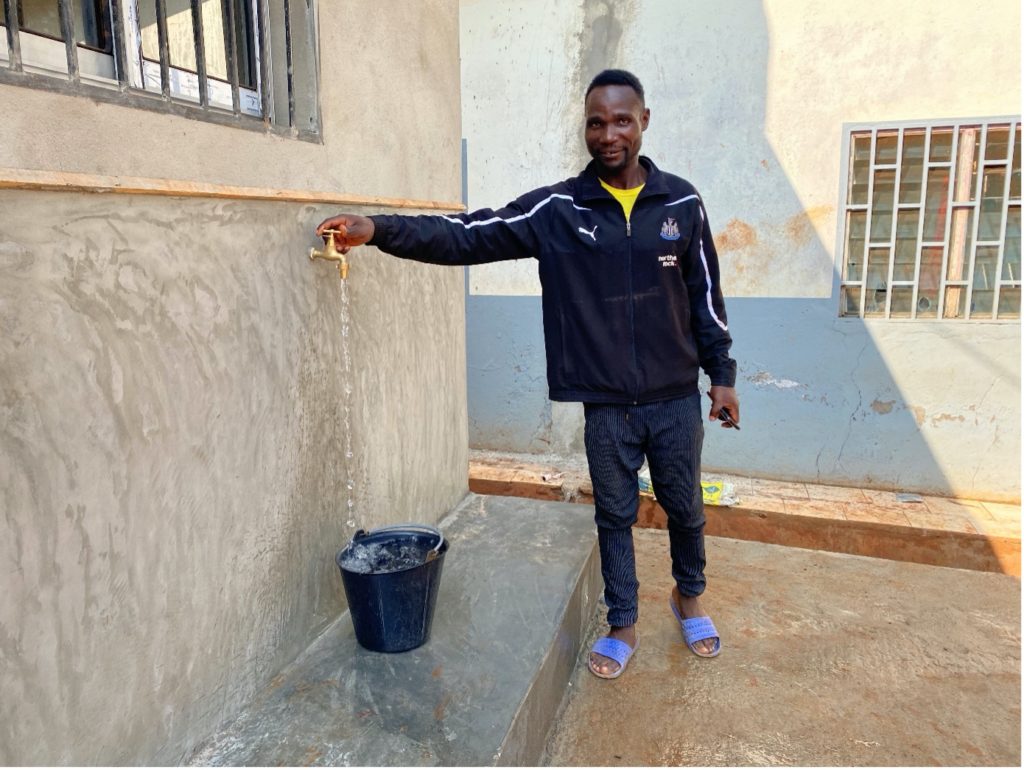
PAULA Opening Celebration in Soa, Cameroon
November 2022
At the beginning of November, the PAULA plant at the health center of the commune of Soa was inaugurated as the first PAULA plant in Cameroon and ceremoniously handed over to the commune of Soa.
The PAULA plant was implemented as part of the INTEWAR joint project. A local water committee, trained by the PAULA Water GmbH, is responsible for the operation of the plant. The treated water is used by the patients and staff of the health center and by the local population.
Numerous people celebrated the inauguration: the mayor and political representatives, village leaders, the local water committee, representatives of non-profit organizations and interested local residents as well as the German and Cameroonian partners of the INTEWAR project.
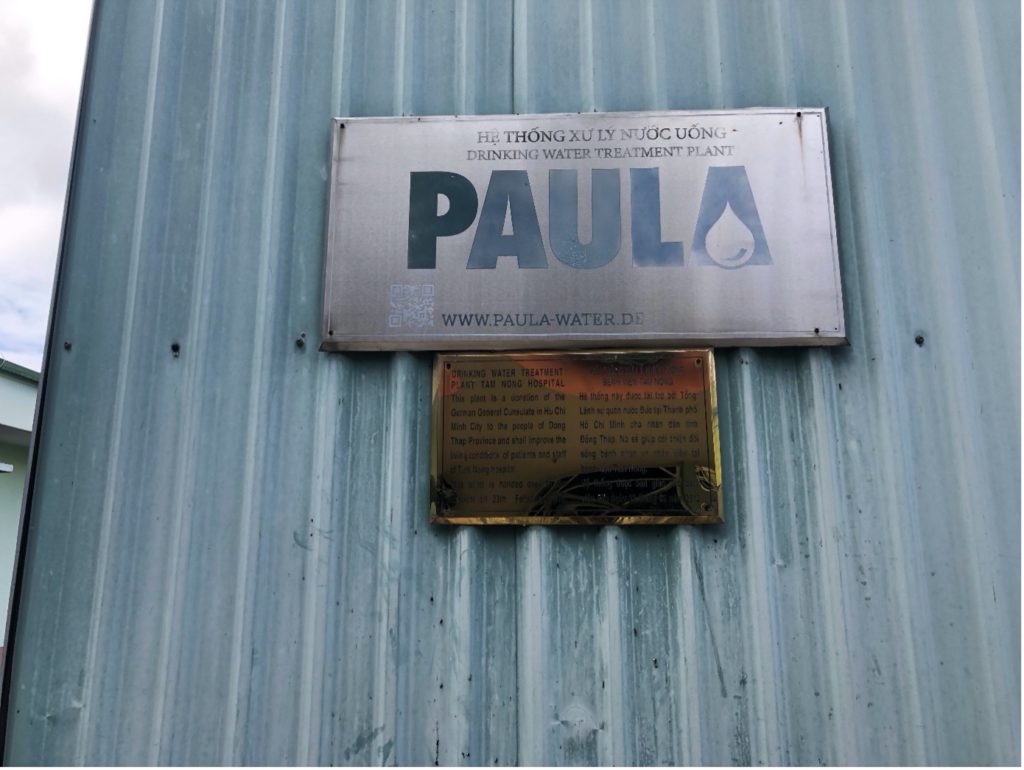
News from the oldest PAULA plant in Vietnam
October 2022
Our local partner in Vietnam, Mr. Luong, has recently visited the oldest PAULA plant which is located in Tam Nong Hospital in Vietnam. The plant is fully functional and the local operator Mr. Tuan is taking good care of it for ten years now.
The PAULA plant at Tam Nong Hospital is treating ground water and can provide 2,000 liters of treated water per day.
This PAULA plant is different from the ones which have been implemented in recent projects as the ultrafiltration membranes are operated by gravity and not by pumps.

PAULA Opening Ceremony at Gejja Women Foundation
September 2022
The facility is used by visitors and staff of the Women's Center as well as the surrounding community. The Gejja Women Foundation is responsible for the operation and maintenance of the plant.
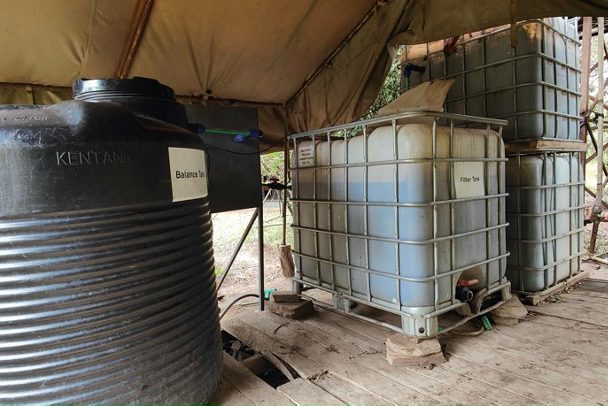
News from the PAULA Plant in Kenia
September 2022
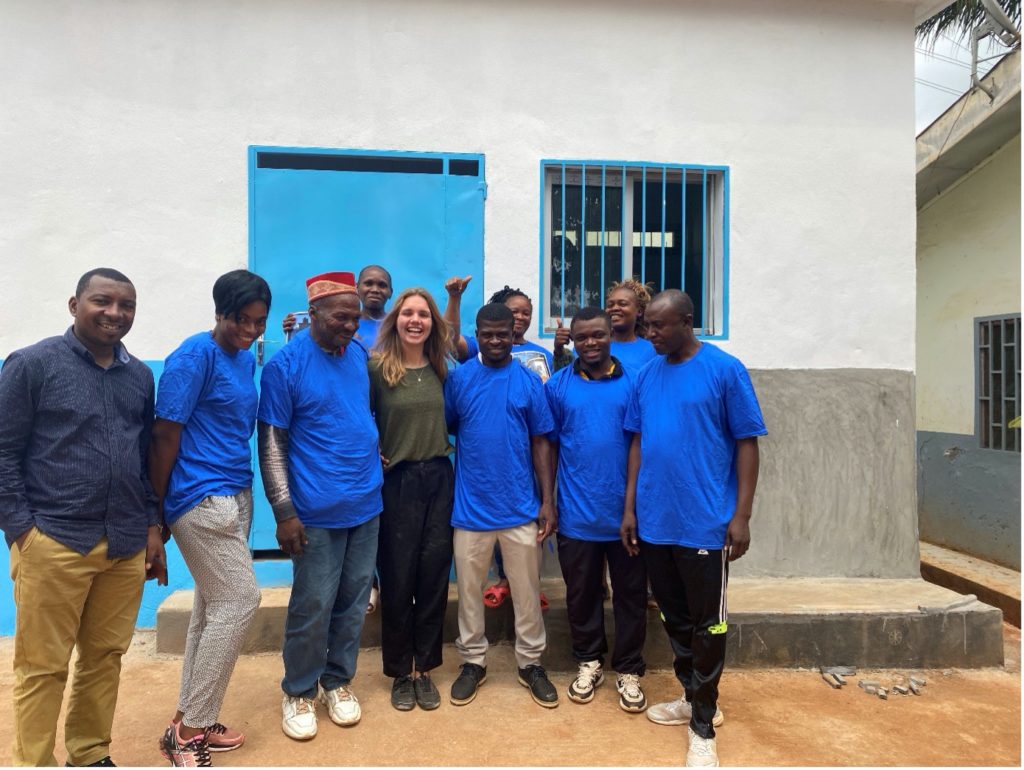
PAULA Operator Training in Soa, Cameroon
August 2022
After completion of the PAULA plant in the commune of Soa in Cameroon, PAULA engineer Lena Löchte conducted a technical operation training for the local water committee of Soa together with Albert Munki from the local partner company AURA Cameroun Sarl.
The water committee will operate the PAULA plant in the future.
Albert and Lena showed the committee how the PAULA technology works and moreover the necessary operation and maintenance tasks. This includes, for example, the mechanical and chemical cleaning of the membranes in the filtration tank or the disinfection of clean-water-tanks.
An operation manual was handed over so that important notes and instructions for the operating and maintaining works can be checked if necessary.
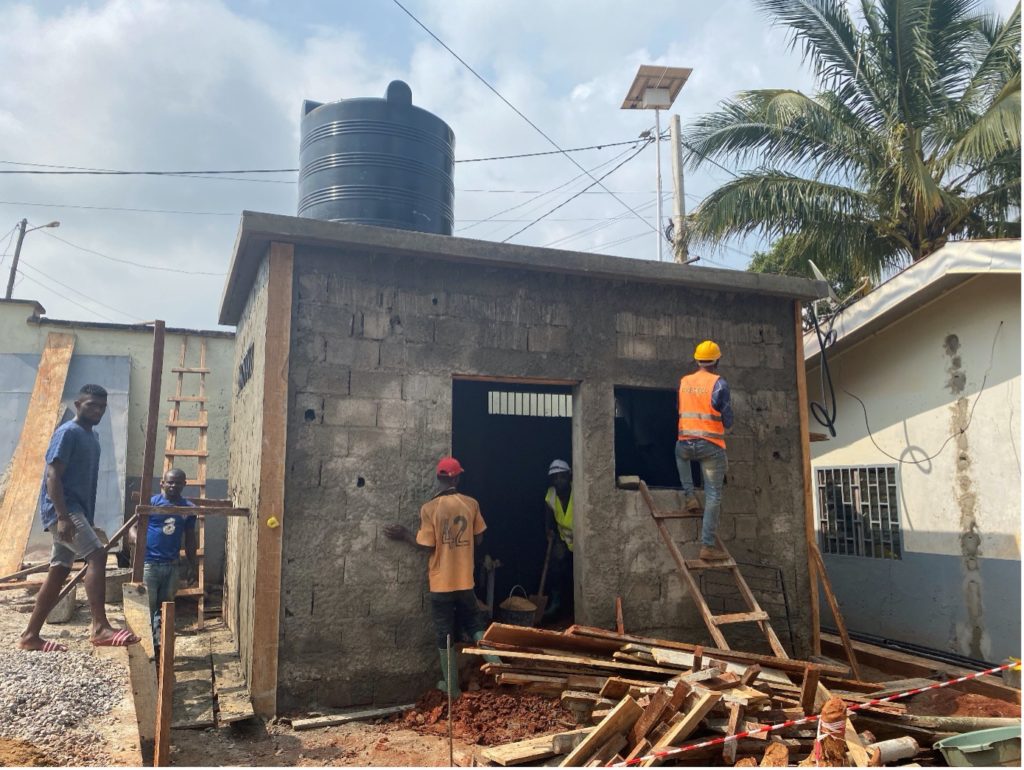
Implementing the first PAULA Plant in Cameroon
July 2022
The construction of the plant house and the installation of the PAULA plant technology has been carried out in cooperation with the local partner company AURA Cameroun Sarl.
The PAULA plant treats water from a well located on the health station's property. It can treat 4.000 liters of water per day.
In future, the PAULA plant will be used by the patients and staff of the health station and the surrounding population. There is a local water committee that will take care of the maintenance of the facility and the well and sell the treated water.
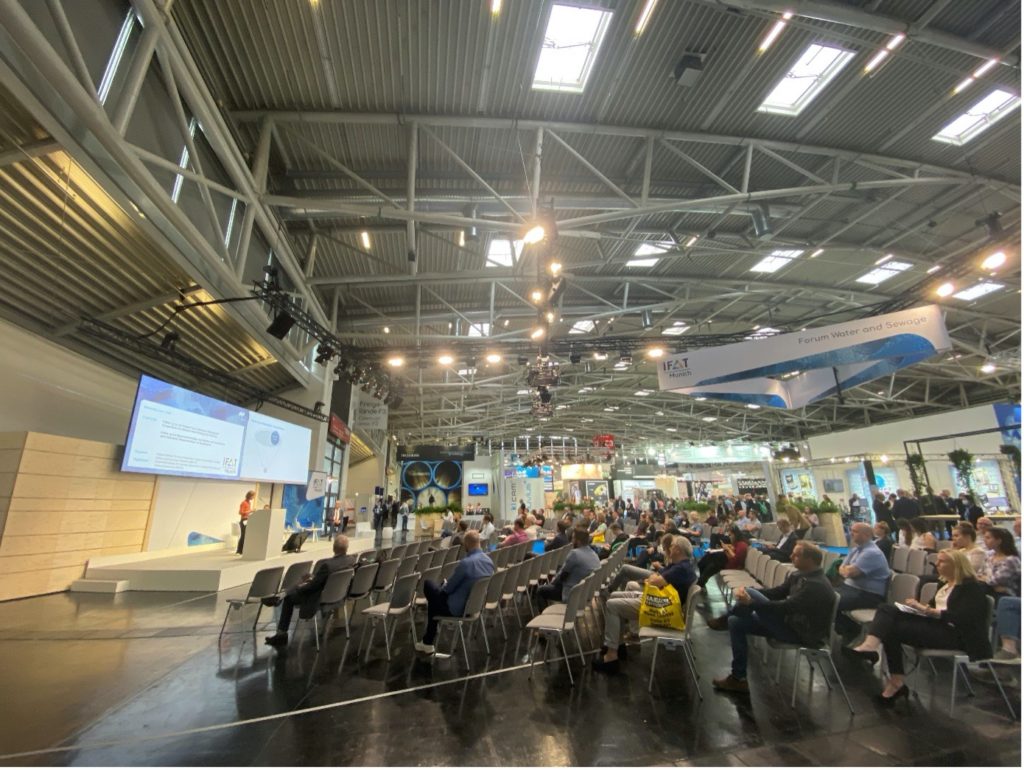
PAULA at IFAT – Exhibition in Munich
June 2022
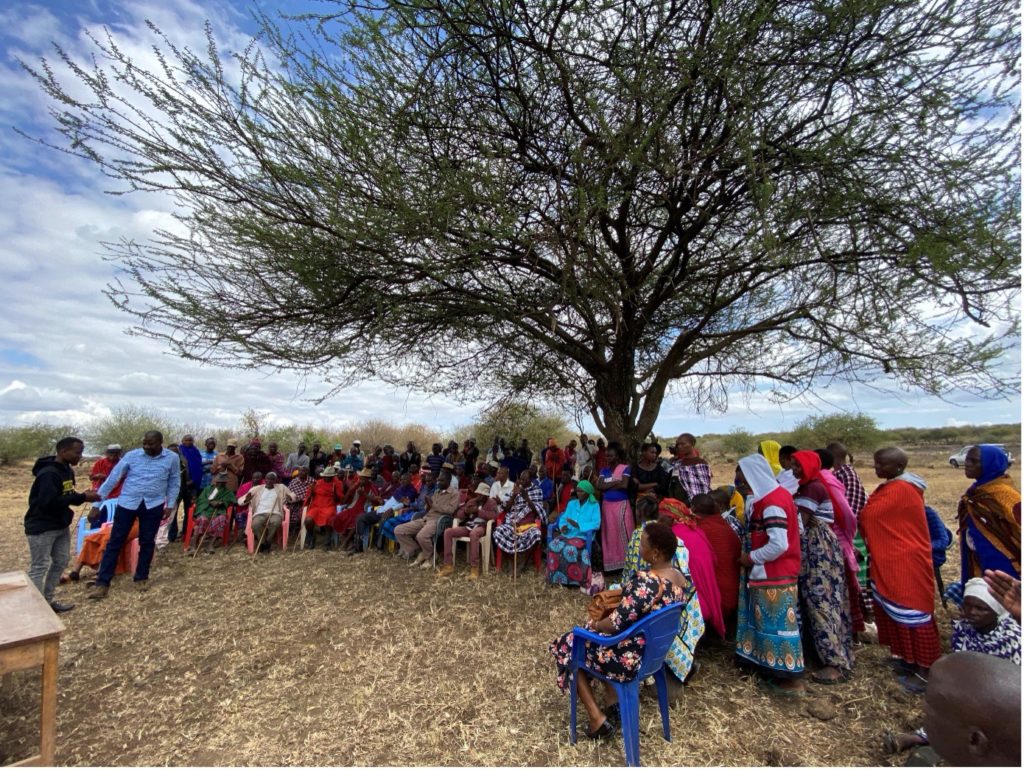
PAULA Handover Celebration in Naiti Village, rural Tanzania
May 2022
On the 28th of May 2022, the PAULA plant in rural Naiti was ceremoniously handed over to the village community. Numerous villagers, locally active organizations and representatives of the local and regional government gathered for the occasion.
With the signature on the handover certificate, the responsibility for the PAULA plant and its maintenance passes to the village of Narakauo. Denis Bura from the local partner organization ECLAT will supervise the PAULA system on a regular basis and provide technical assistance in case of malfunctions and problems.
Same as in the village of Narakauo, the PAULA plant in Naiti is operated by a local water committee. They have been trained for operation and maintenance task together with the water committee of Narakauo village.
After some ceremonial speeches, the local water committee explained the PAULA system to the gathered community and showed what they have learned during the previous practical training week.
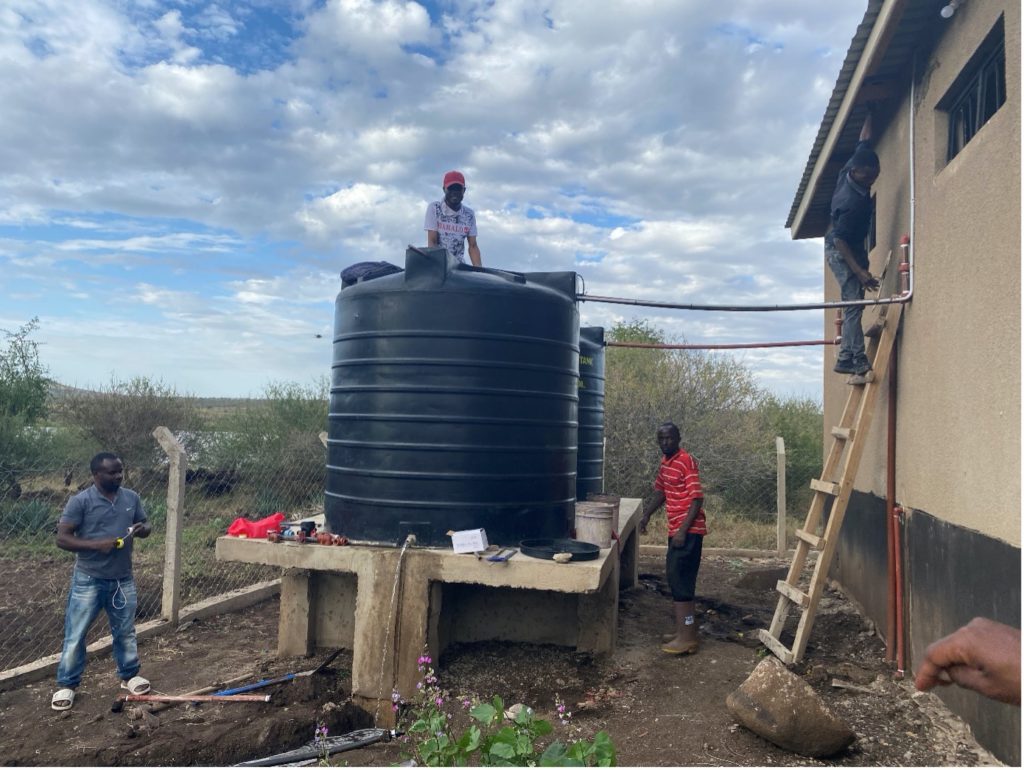
Finalizing the PAULA Plant in Naiti Village, rural Tanzania
May 2022
In addition to the PAULA activities in the village of Narakauo in May, the local partner organization ECLAT finalized a PAULA treatment plant in Naiti village! Naiti is located in a rural area, about one hour away from Arusha.
Just like the PAULA plant in Narakauo village, the plant in Naiti treats water from a lake. The Naiti Lake is highly turbid and microbially contaminated by the feces of elephants and other wild animals.
The PAULA plant in Naiti can treat 20,000 liters of water per day. A special feature of the PAULA plant in Naiti is that all twenty ultrafiltration membranes are installed in one filtration tank which is made of in-situ concrete. A plant's own solar system provides power for the pumping technology of the plant.
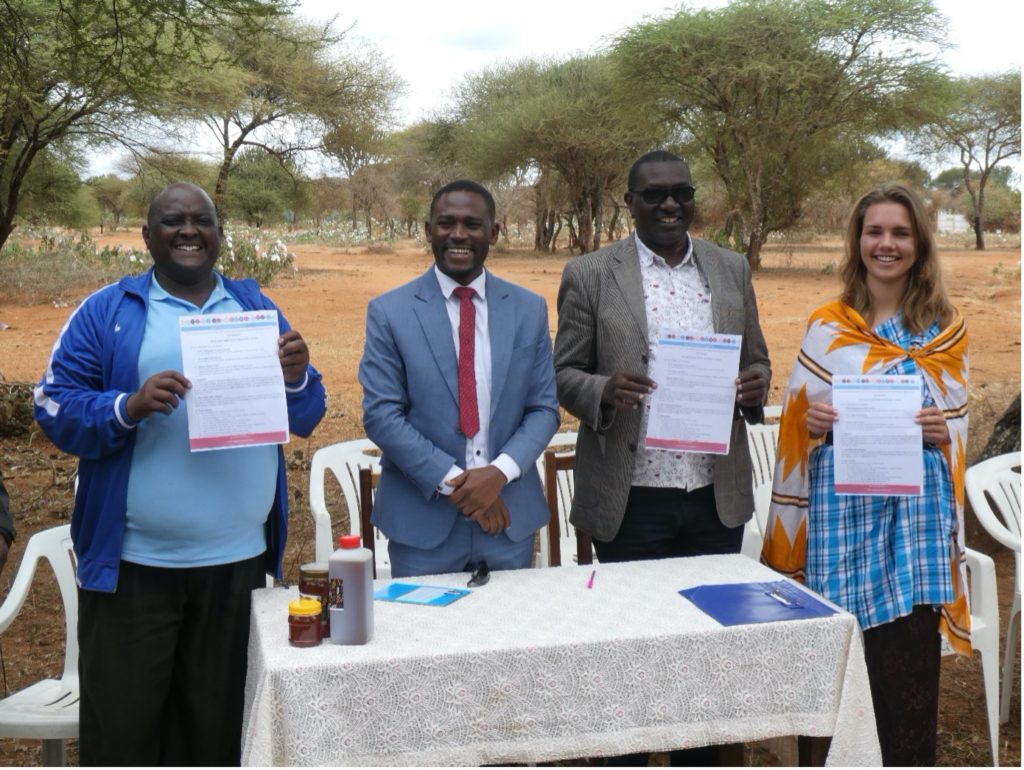
PAULA Plant Handover Celebration in Narakauo Village
May 2022
On the 27th of May 2022, the PAULA plant in rural Narakauo was ceremoniously handed over to the village community. Numerous villagers, locally active organizations and representatives of the local and regional government gathered for the occasion.
With the signature on the handover certificate, the responsibility for the PAULA plant and its maintenance passes to the village of Narakauo. Denis Bura from the local partner organization ECLAT will supervise the PAULA system on a regular basis and provide technical assistance in case of malfunctions and problems.
After some ceremonial speeches, the local water committee explained the PAULA system to the gathered community and showed what they have learned during the previous practical training week. At the water distribution point, the first bottle of treated drinking water was ceremoniously consumed!
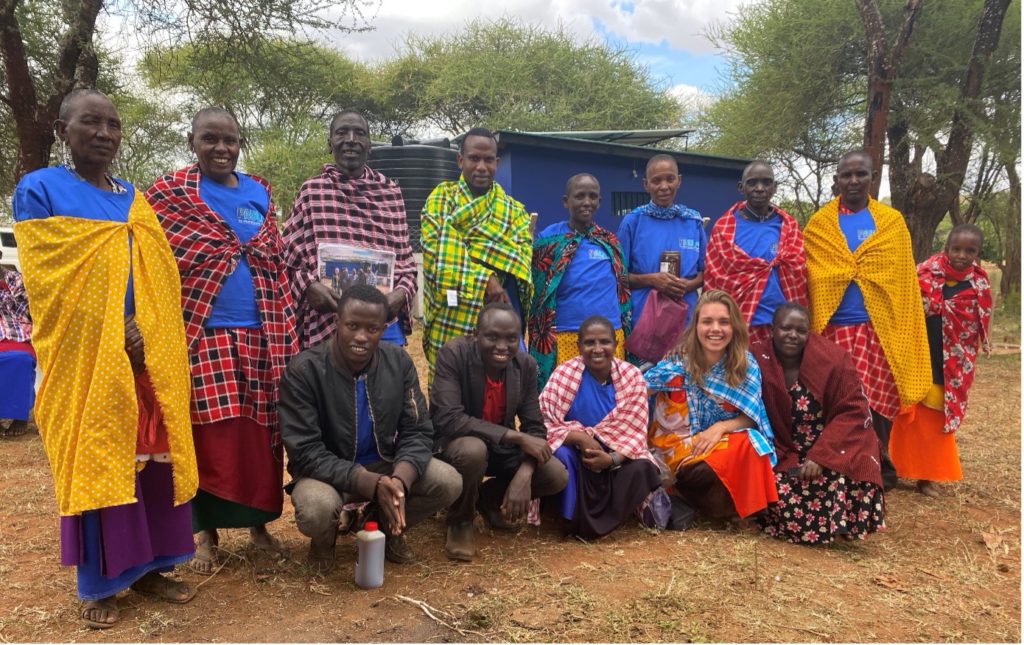
Practical Training for the local operators of PAULA Narakauo
May 2022
PAULA engineer Lena Löchte conducted a practical training week for the water committee of Narakauo together with Denis Bura from the tanzanian partner organization ECLAT. The water committee is in charge of operating and maintaining the PAULA plant.
First, the committee was introduced to the basic principles and functions of the PAULA plant including pumping, treatment principles and solar technology. In addition, the necessary operation and maintenance tasks as well as responsibilities were discussed and divided within the committee.
Manual cleaning of the filtration tanks was shown and practiced together during the training week. Furthermore, the principle of chemical cleaning for the filter and the effect of chlorine and sodium hypochlorite was explained. The committee practiced how to mix the chemical cleaning agent for cleaning the membranes and also learned how minor repairs to the plant can be carried out.
Another topic discussed was reporting. The "Operation Diary" and "Cleaning Diary" have to be filled daily. The water committee participated actively and engaged in the training!
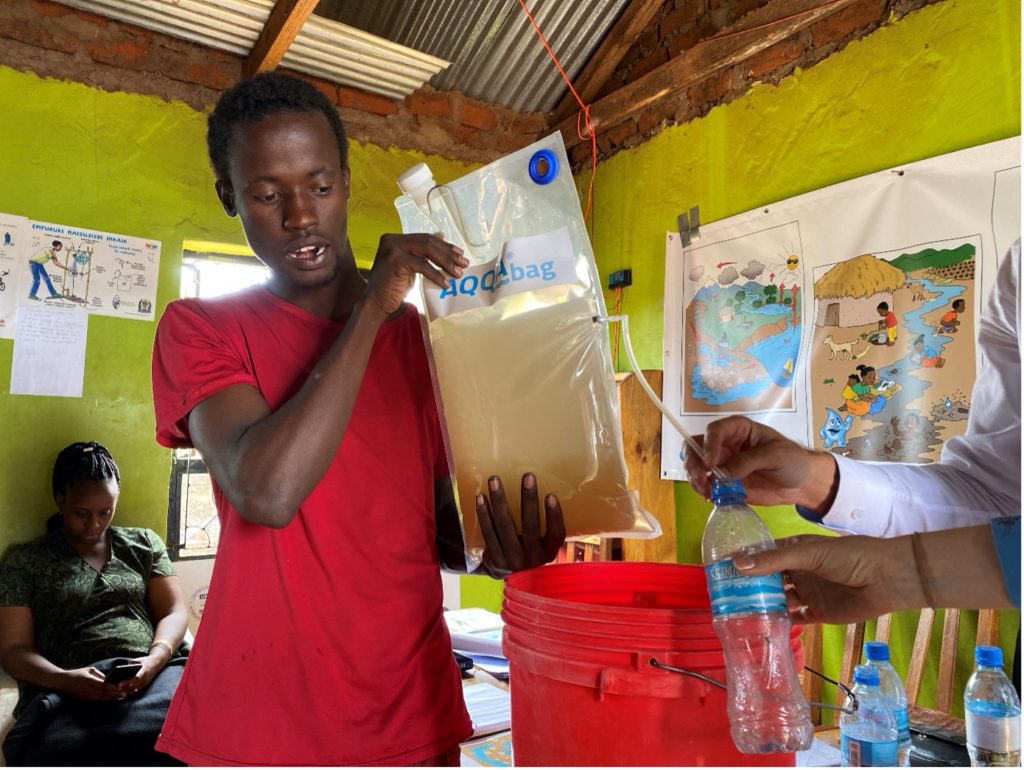
Awareness training for the local population of Narakauo Village
May 2022
Local methods of water treatment were presented and the principle of ultrafiltration - as it takes place in PAULA plants - was explained.
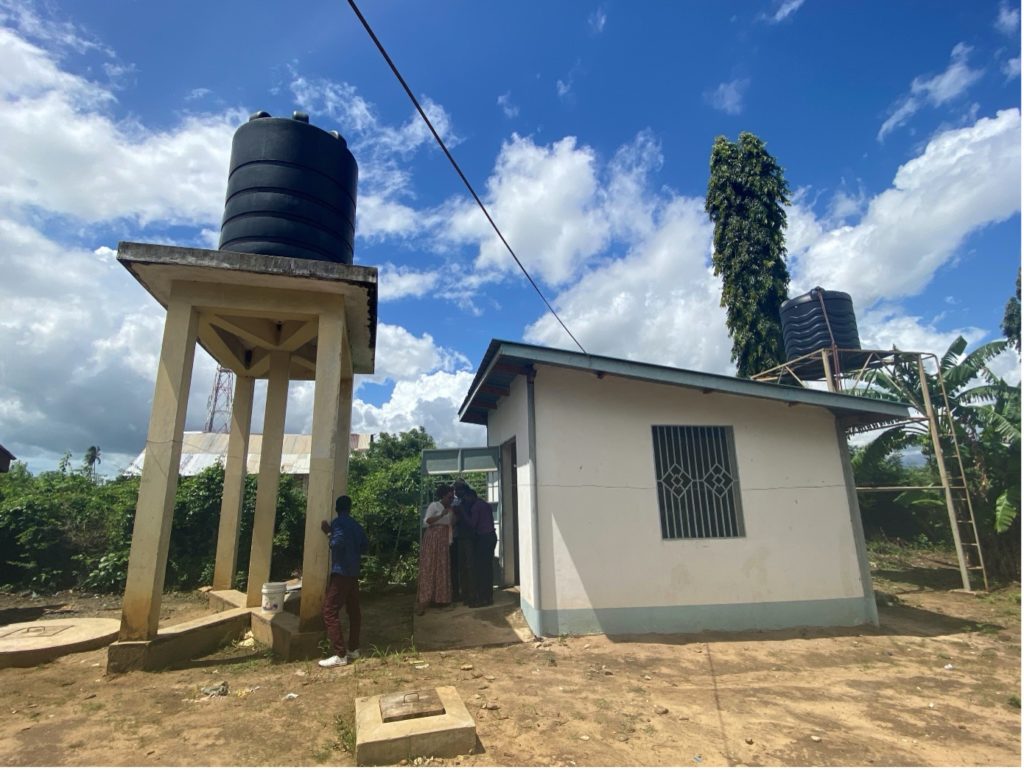
Visiting the PAULA Plant in Dar es Salaam, Tanzania
May 2022
In May 2022, PAULA engineer Lena Löchte visited the PAULA treatment plant at Kiwohede Center in Dar es Salam, Tanzania. The PAULA plant was installed in 2019.
The Kiwohede Center provides education and accommodation to disadvantaged children from Tanzania and neighboring countries.
The PAULA plant on site treats tap water from a central water supply network to which the Kiwohede Center is connected. The PAULA plant can provide 2,000 liters of treated water every day. The staff and students of the center use the treated water.
The plant is operated jointly by the center's teachers and students. During the visit, they demonstrated how they clean the membranes and showed the operational tasks they perform to keep the PAULA plant functional. The students were able to explain how the ultrafiltration technology works and knew how important clean, germ-free water is to people's health.
The PAULA plant technology is working perfectly at the Kiwohede Center and the children and staff enjoy the clean drinking water every day!
At the time of the visit, the raw water tank had a crack. The center management is currently organizing a replacement.
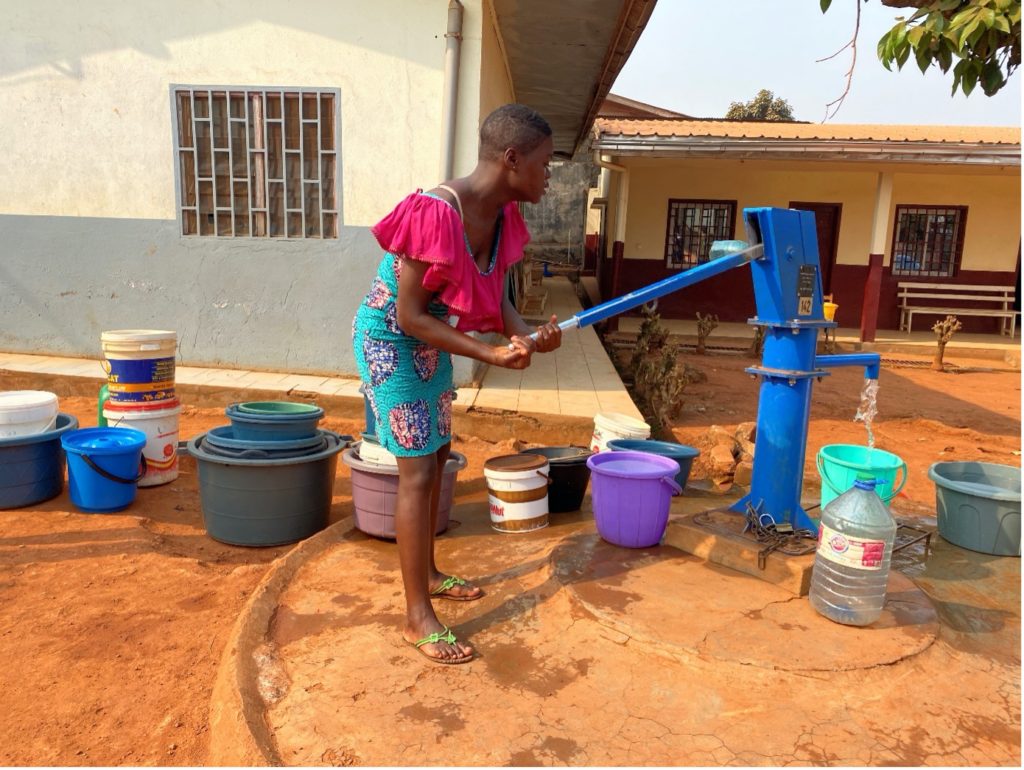
Journey to Cameroon with the partners of INTEWAR program
February 2022
In February 2022, PAULA engineer Lena Löchte traveled to Cameroon. There, the PAULA Water GmbH supports the joint project INTEWAR with technical solutions on the topic of disaster and risk management in the field of drinking water supply.
Within the joint project INTEWAR the PAULA Water GmbH is active at three different locations in Cameroon: in Douala, Soa and Yaoundé. The PAULA Water GmbH is supporting the project by the implementation of three PAULA plants – one in each location - which is scheduled to take place in 2022 and 2023.
During the trip to Cameroon, a conference was held to determine the specific location for the first PAULA plant, which will be installed in the commune of Soa. The conference was attended by local stakeholders such as the mayor and political representatives, village leaders, a local water committee, teachers, doctors, water engineers and technicians, representatives of non-profit organizations and interested local residents as well as the German and Cameroonian partners of the INTEWAR project.
In the conference, the health center of the commune of Soa was selected as the site for the first PAULA plant in Cameroon. On the site of the health center there is a deep well (depth: 35 m), which supplies water to the patients and staff of the dispensary as well as to the population in the neighborhood. The well is managed and operated by a local water committee. The well water is low in particles and turbidity, but contaminated with microbial pathogens, as the results of a water analysis showed. Through the construction of a PAULA plant, the contaminated well water can be treated in future, so that germ-free water is available to the health station and the local population.
Following the trip, the PAULA Water GmbH is now planning the concrete implementation of the PAULA plant on the property of the health station in Soa together with a Cameroonian company.
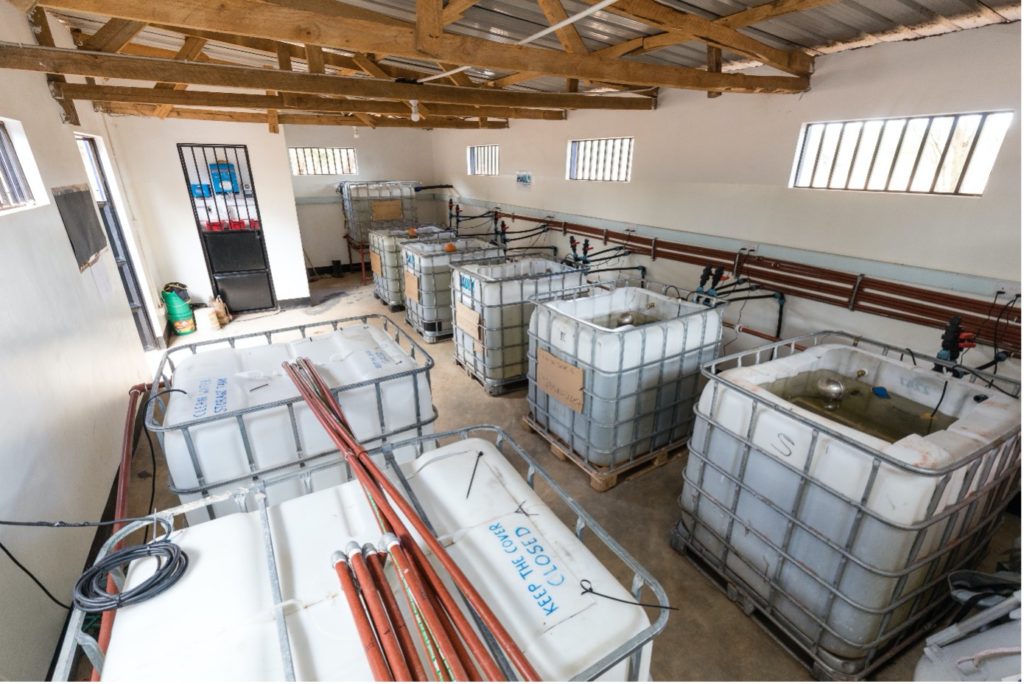
Finalizing the PAULA Plant in the village of Narakauo in rural Tanzania
December 2021
The ultrafiltration membranes were moved into the filter tanks and connected to the system. The remaining piping was installed and pumps were connected aswell. Afterwards, the PAULA system was flooded and tested for functionality.
Result: The PAULA system in Narakauo is working perfectly!
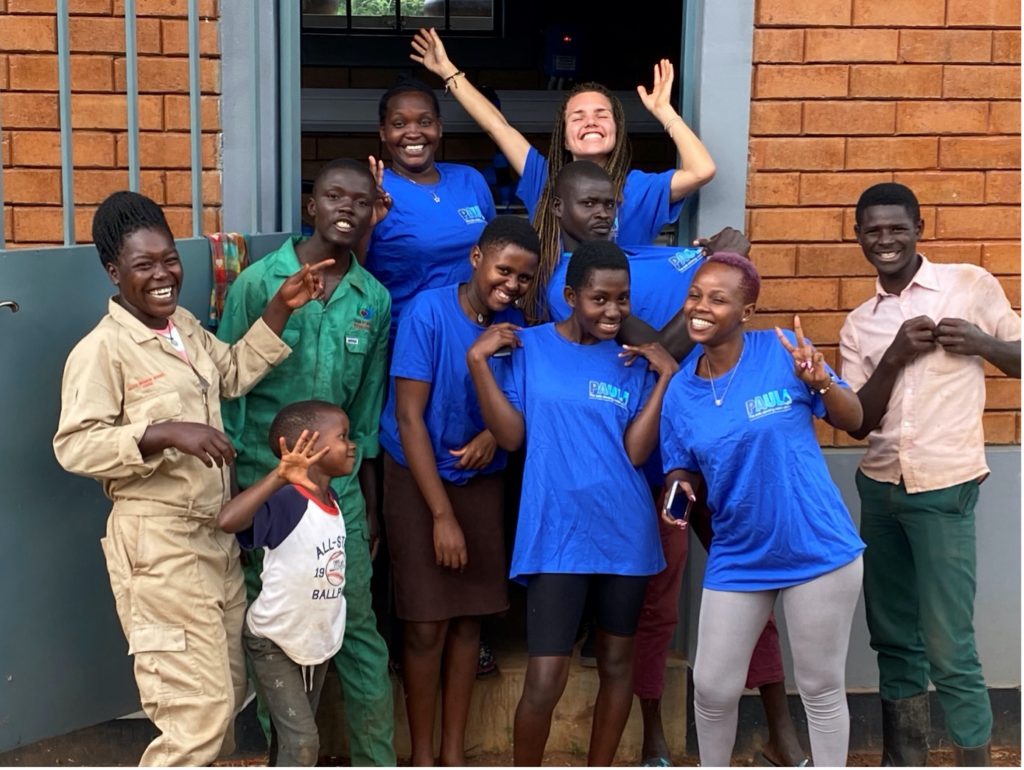
Training for PAULA Operators in Uganda
November 2021
Immediately after the installation of the PAULA plant at the Gejja Women’s Center in Uganda, the technical training on how the plant works and daily operational tasks took place.
PAULA engineer Lena Löchte explained to the operators on site how the PAULA plant works, how to keep the ultrafiltration membranes in the filter tanks clean and how to carry out minor repair work.
The PAULA plant at Gejja can provide 4,000 liters of treated water per day. The Women's Center staff is responsible for operating the PAULA plant at the Women's Center.
The users of the PAULA plant are the women and girls who visit the Women's Center every day as well as the people, the staff of the Women's Center and the people who live in the surrounding area. So far, PAULA water has been distributed free of charge; a water tariff is to be introduced in the future.
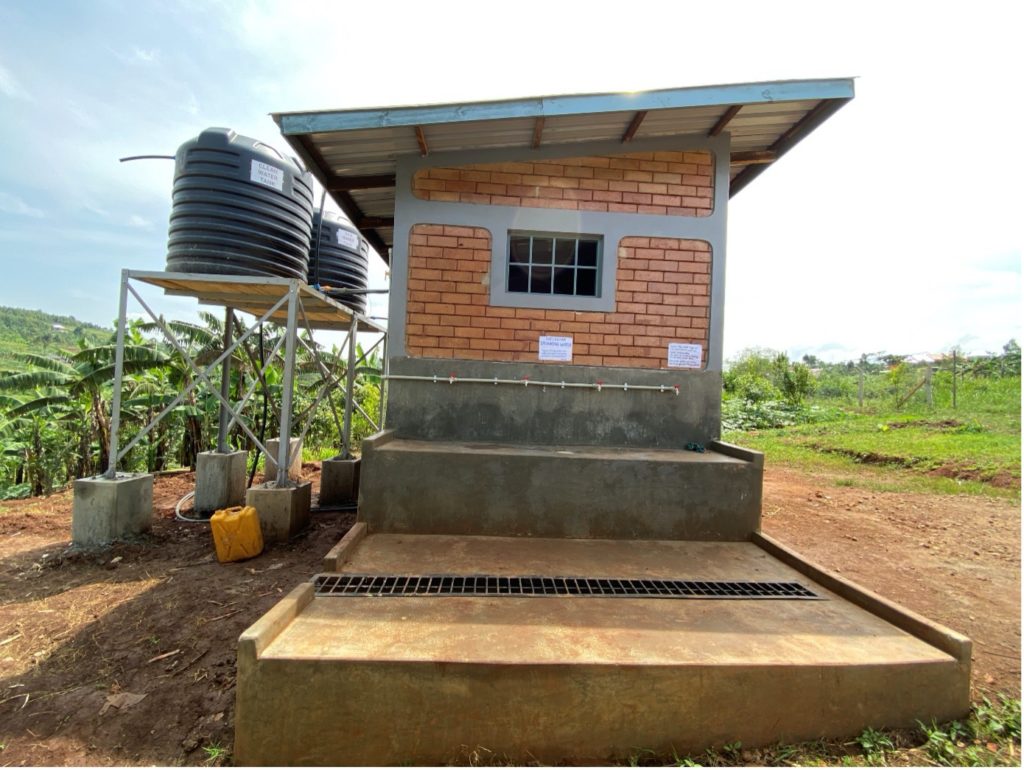
Installing a PAULA plant at the Gejja Women Foundation in Uganda
November 2021
The women's center is located in a rural outskirt of the small town of Mpigi, which is about 40 kilometers from Kampala, Uganda's capital.
Gejja Women Foundation is a Ugandan social enterprise that supports disadvantaged women and girls from rural areas through various activities in the areas of education, women's rights, gender equality and financial independence, family planning, health and hygiene, and agriculture.
The raw water for the PAULA plant is supplied by a shallow well (depth: 6 m) on the Gejja Women Center property. This was built in the course of the PAULA installation. Treatment of the well water is necessary to provide a safe drinking water supply, as analysis of the well water revealed fecal contamination. The contamination may be related to agricultural practices such as manuring with slurry or slurry, livestock, or poor sanitation systems such as leaking pit latrines and septic tanks.
Various local companies and craftsmen were hired on site to build the facility house and install the electrical and plumbing systems for the facility. Since the women's center is not connected to a power grid, a solar system was also installed by a local company from Kampala to ensure the energy supply for the facility's pumping and lighting technology.
The PAULA plant at Gejja can provide 4,000 liters of treated water per day.

A PAULA Plant for the village of Narakauo in rural Tanzania
October 2021
The engineers Lena Löchte and Jochen Schunicht traveled to Tanzania in October 2021 to install a PAULA system in the village of Narakauo together with the local community. Narakauo is located in Simanjiro District, in the north of Tanzania near Mount Kilimanjaro.
The PAULA site in the village of Narakauo was selected by the locally active Tanzanian non-governmental organization ECLAT Foundation, which works closely with the German association upendo e.V..
About 19,000 people live in the village of Narakauo. Most of them belong to the Maasai ethnic group, who live a very traditional and partly still nomadic life, isolated from civilization. The energy, water, health and sanitation supply in Narakauo corresponds to the typical situation in rural areas of developing countries: The village is not connected to the national power grid or to a central water supply network. The main source of energy for the households is wood and charcoal. For water supply, villagers use a lake which is located close to the village center. The population suffers from malnutrition, hunger and poverty. People live in small, simple mud huts with inadequate sanitation and hygiene conditions. Only a few have their own toilets (pit latrines). Open defecation is common practice. Due to poor hygiene practices and consumption of contaminated water, children in particular suffer from waterborne diseases like diarrhea.
The Narakauo lake provides raw water for the PAULA plant. The lake is fed exclusively by rainwater, so the amount of water fluctuates greatly with the seasons. The villagers of Narakauo use the lake water for personal hygiene, direct consumption, food preparation or washing clothes. Trucks deliver the lake water to more distant households. Herds of cattle are led to the lake for drinking water. A major problem is that livestock not only drink from the lake, but also defecate in it. As a result, the is heavily fecal contaminated.
The PAULA plant treats the lake water and removes turbidity and microbial pathogens!
The construction of the PAULA house and the electrical and water installations have been done by a local Tanzanian company based in the city of Arusha. Since the village of Narakauo is not connected to the national power grid, its own solar system provides power for the pumping equipment and lighting. The solar system was installed by another company from Arusha.
The connection of the PAULA plant technology was done by the engineers of the PAULA Water GmbH in cooperation with the local organization ECLAT. The local population, especially the local water commitee, have been involved in the installation process as well. They have been taught how to install the PAULA plant components and how to carry out basic operation and maintenance tasks. The PAULA plant in Narakauo village can provide 20,000 liters of treated water per day.
